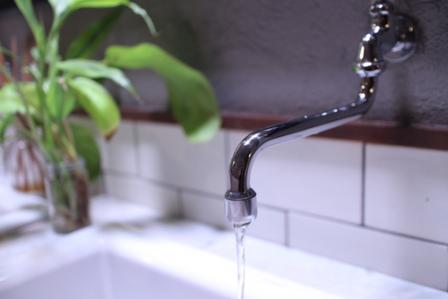
The tap water we drink, cook with, and bathe in typically comes from either surface water sources like streams, rivers, lakes, and reservoirs, or from underground sources like aquifers, permeable rocks that can store and transmit water. A range of dangerous pollutants have been found in this water, including bacteria like e. coli, toxic algae, lead, sulfur, excess iron, and general dirt and grit, that are known to lead to a host of health issues from gastrointestinal problems to neurological disorders, as well as reproductive issues.
So how do these contaminants get in our water in the first place? And how can you, as an individual, know whether or not your tap water is safe for you and your family to drink?
How Does Drinking Water Become Contaminated?
According to the Center for Disease Control, the most common sources of contamination in the US water system are related to local land uses and manufacturing processes. For example, fertilizers and pesticides used on farmland as well as contributions from livestock, can leak into surface water sources if not carefully monitored. Sewer overflows as well as any malfunctions in septic systems can also lead to contamination. Some other chemicals, like arsenic, occur naturally and so their levels also need to be checked.
Ironically, massive rain can also affect the supply of clean water. Earlier this month, 1.5 million Chileans living in the city of Santiago were left without water because massive amounts of rain led to mudslides and flooding which brought contaminants into the Maipo River, a major source of drinking water there.
See Also: Should You Drink Tap or Bottled Water?
How Do I Know If My Drinking Water Is Safe?
In the U.S., keeping our drinking water safe from contaminants is largely the job of the Environmental Protection Agency. Luckily, the EPA has a variety of programs and searchable maps that make checking the contaminants in your water as simple as typing in your zip code or picking up the phone to dial their hotline. However, the EPA is facing huge proposed budget cuts under...
Keep reading on Quick and Dirty Tips
Tidak ada komentar:
Posting Komentar